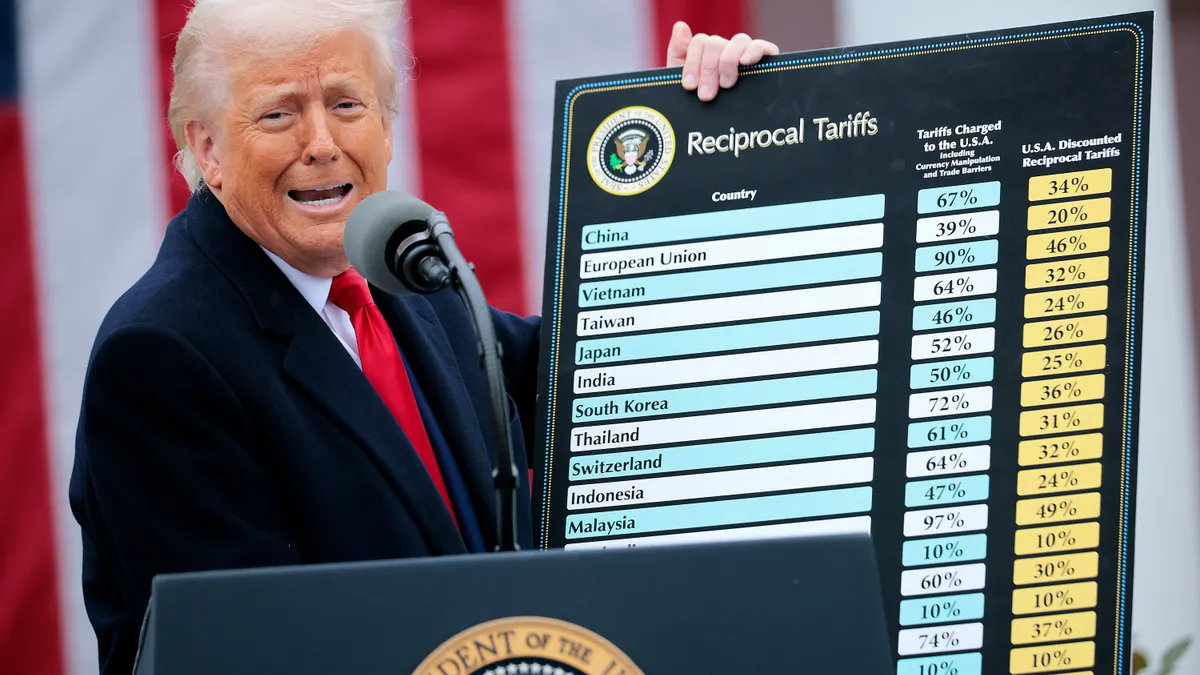Market volatility and rapid technological change are putting pressure on CFOs’ planning efforts as they navigate fresh uncertainties — from tariffs affecting supply chains to AI rollouts and growing competition for talent.
At an American City Business Journals virtual roundtable last week, the CFO of workforce technology provider Magnit and the vice president of finance and strategy at kitchen products company Made in Cookware suggested ongoing scenario planning is essential.
“As I think about challenges today — beyond AI and technology — we've got this uncertainty in the markets with tariffs and seeing customer pullbacks,” said Rudy Gonzalez, CFO of Folsom, California-based Magnit. “As a CFO, you have to be a utility player.”
CFOs should plan for optimization and recovery, including how to manage debt if interest rates rise. They should also anticipate customer churn, he added.
Jimmy Du, vice president of finance and strategy at Austin-based Made in Cookware, said the company has been running scenario plans for some time. Systemic events in recent years — including the COVID-19 pandemic and bank failures — can affect cash and revenue projections, and companies need to pivot, he argued. Now, the company is assessing the fallout from trade tariffs.
“Tariffs, to some degree, are outside of our control, but we're asking our manufacturers to share the cost,” he said. The company is scrutinizing expenses, including headcount, processes and warehouse operations — while working to retain inventory and meet growth targets. It’s also looking for ways to offset tariffs while keeping operational expenditures tight.
Amid lingering inflation and high financing costs, return on investment “has to be held to a higher standard” than just a few years ago, Gonzalez said.
Holding on to cash to invest in growth
Magnit, after paying down debt, built a cash “war chest” that allowed it to invest in automation and agentic tools to offset wage inflation, Gonzalez said.
Made in Cookware said it hasn’t made major changes to its allocation strategy in response to economic pressures, but as an inventory-heavy business, maintaining the flow of payments to suppliers is a priority, Du said. The company has frozen hiring and accelerated cost–cutting measures.
Cost savings, including from the back office, will be redeployed to marketing, which the company sees as a critical growth driver.
“Marketing spend is probably the last thing I would touch, as long as it's spent efficiently and at the right metrics — all of the savings that we make are then redeployed to drive growth,” said Du.
Managing AI adoption
Both companies are cautiously optimistic about the role of artificial intelligence in streamlining tasks across finance and the broader workforce. Made in Cookware is testing the use of AI to automate tasks, including invoice tagging.
While using AI to drive efficiency is appealing, companies should weigh the benefits of an enterprise platform against a patchwork of point solutions, which can be less attractive “because it's hard to get the ROI when you're duplicating costs and have to build integrations,” Gonzalez said.
Companies also need to consider how much human oversight AI-generated output requires, particularly around data privacy, he added.
Panelists also discussed how CFOs can attract top talent to their firms, with remote work and quicker career development paths acting as possible inducements for up-and-coming professionals.
Remote work “opens the door to talent that's not right by a physical office, and that used to be a limiting factor for companies,” Gonzalez said. Remote work also opens up opportunities to bring in talented candidates who are based outside the U.S., he added.














